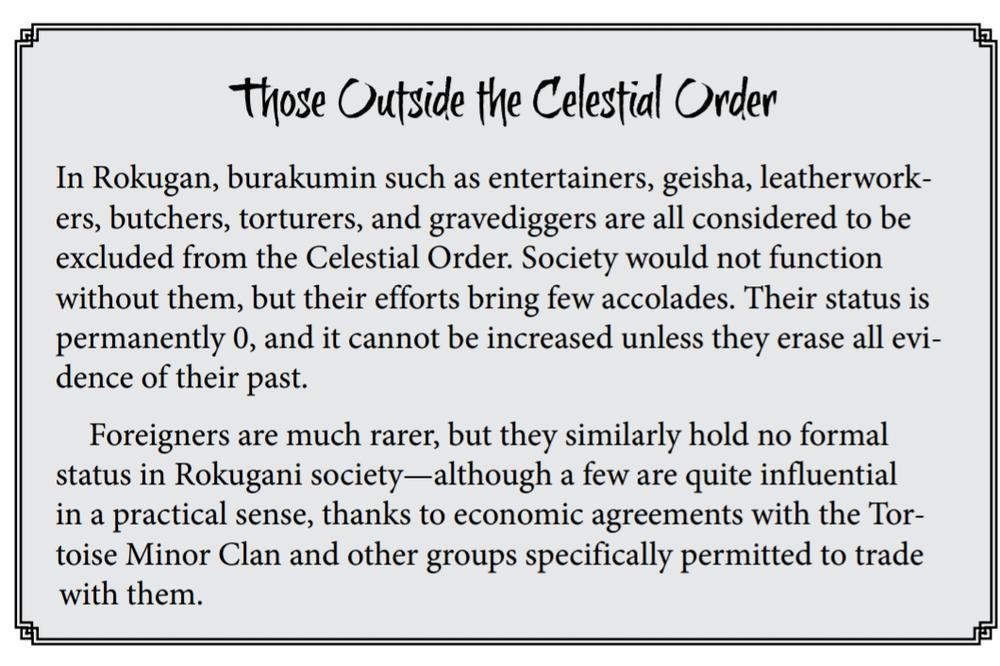This seems like a small and insignificant change from the original content- but I feel it has huge ramifications.
What motivation does a Burakumin/Eta/Hinin have to live in their terrible working conditions if not for the promise of coming back higher in the order in the next life? Sure there's the threat of samurai killing you, but there are more burakumin then there are samurai- and with out an cosmic positive incentive- i can see "burakumin" becoming synonymous with criminal.
Of course that's more of a practical argument instead of a religious one- but I feel including them in the order is more consistent anyways. Burakumin would still recognize the emperor as the son of heaven (they're uneducated- but they aren't THAT uneducated). They are still Rokugani. They still play their part. Still recognize the order, the emperor, the heavens, and the fortunes.
You cant say the same for Gaijin. Their only chance for salvation was to except these ideologies - that the unicorn would often introduce them to. Otherwise gaijin arent even nothing, they're less then nothing- and likely a danger.
The difference between hinin and gaijin is the difference between being the bottom of the barrel- and not being in the barrel at all.
Of course FFG is free to try new things with the material- I have no problem with that- in fact I like quite a number of the changes so far. But I feel in this case the original source material will lead to less inconsistency down the line.
(For source material on this I found the sections "Hinin and the Void", on page 122, and "Gaijin and the Void", on page 123, in the 4th edition supliment "The Book of the Void" to be very helpful)
Edit: addition of the snippet im referencing
Edited by RodentJoe